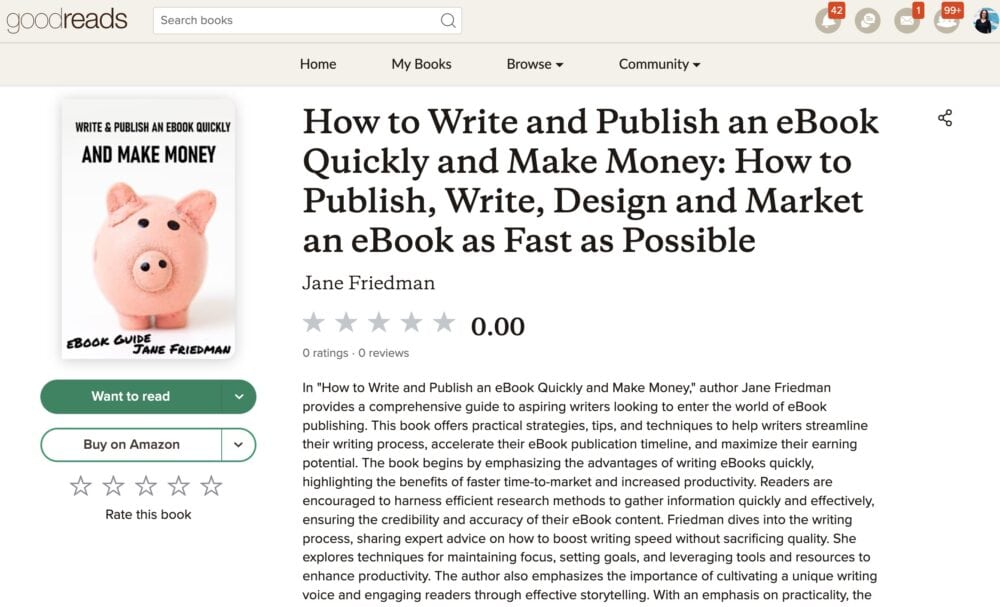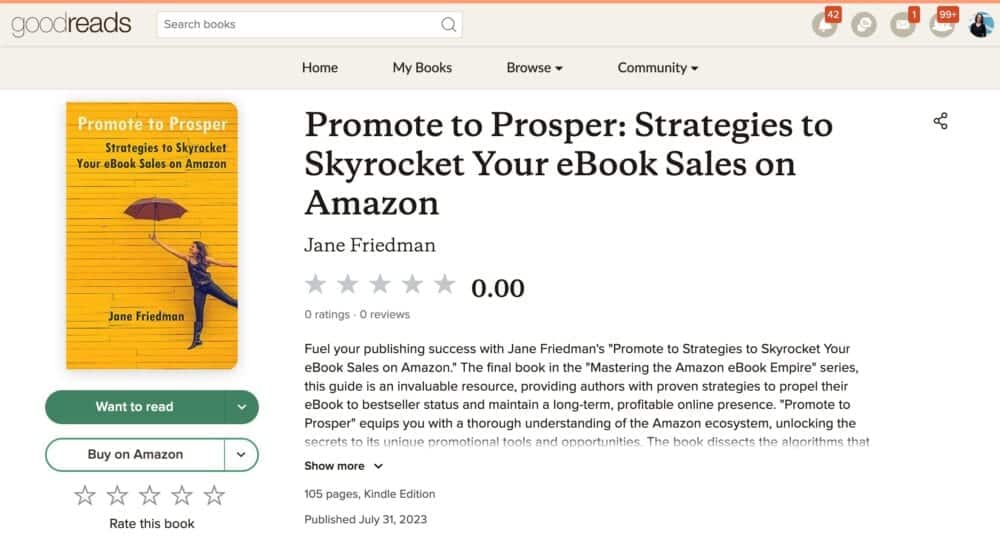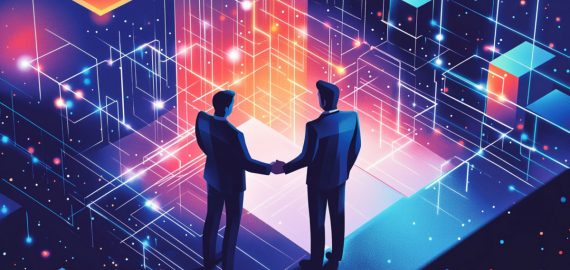AI-Generated Books Pose New Challenges for Authors


In Brief
The emergence of AI-generated books has raised significant challenges and concerns for authors in the literary world. These books, created by AI programs trained on vast amounts of text data, mimic the styles and content of real authors without proper credit.
The issue was highlighted by Author Jane Friedman, who discovered several AI-generated books falsely attributed to her on Amazon.
Friedman’s case underscores the need for authors to safeguard their work, trademark their names, and register their copyrights to counter the threat posed by AI-generated books.

Many famous authors have their works included in the text data that AI programs use for training. As a result, AI can produce text that mimics the style and content of real authors without giving them any credit.
Such situations jeopardize authors’ intellectual property rights, as their work can be copied and distributed without their consent. It also creates a challenge for the readers, who may not be able to distinguish between a human-written book and an AI-generated book. However, these are not the only problems that AI can cause in the literary field.
Fake Books Misattributed on Amazon Raises Concerns for Writers
Earlier this week, Author Jane Friedman discovered that half a dozen AI-generated books had been falsely listed as being written by her on Amazon and Good Reads. Friedman, who has published several books about the publishing industry, said that the books were “low-quality material” and that they appeared to be an attempt to trade on her name and reputation.
“I’ve been blogging since 2009—there’s a lot of my content publicly available for training AI models. As soon as I read the first pages of these fake books, it was like reading ChatGPT responses I had generated myself,”
she wrote in a blog post.
The three fake books that were falsely attributed to Jane Friedman had titles that suggested they were about helping authors write and publish successful ebooks on Amazon. The titles were:
- Your Guide to Writing a Bestseller eBook on Amazon
- Publishing Power: Navigating Amazon’s Kindle Direct Publishing
- Promote to Prosper: Strategies to Skyrocket Your eBook Sales on Amazon


Friedman contacted Amazon to have the books removed, but the company initially refused. Amazon said it would not remove the books because Friedman had not trademarked her name. However, after Friedman took her case to Twitter, Amazon eventually relented and removed the books.
The author believes that her visibility and reputation as a respected author were the main reasons Amazon took down the fake books falsely attributed to her. However, she is concerned that this is a disturbing issue for writers that will likely continue. Friedman tweeted, “How long until it happens again? What about authors who don’t have the ability to raise a big red flag like I do?”
This case highlights the new challenges that AI-generated books pose for authors. In the past, authors could rely on copyright law to protect their work from unauthorized copying. However, AI-generated books are not protected by copyright law because they are not considered to be original works of authorship. This means anyone can create and publish an AI-generated book without permission from the author.
Friedman’s case is a wake-up call for authors. AI-generated books are a new threat to the publishing industry, and authors should take steps to protect their work. This includes trademarking their name and registering their copyrights. Authors should also be vigilant about monitoring their work online and reporting any unauthorized use to Amazon and other online retailers. Hopefully, Amazon and other retailers will come up with effective measures to prevent the appearance of AI-generated “garbage books,” as Friedman calls them.
Concerns of AI-Generated Books: Quality, Plagiarism, and Author Livelihood
Tools like ChatGPT have enabled rapid book creation, raising concerns about quality and authenticity. The surge in AI-written books spans various genres, with illustrated children’s books gaining popularity. This trend could reshape the traditional book industry and potentially discourage aspiring authors.
AI-generated books can pose many challenges for authors. One challenge is that people can create and sell low-quality, machine-written books based on the work of real authors. The consequences can lead to confusion among readers, who may not be able to tell the difference between a human-written book and an AI-generated book.
Another issue is AI-generated books leading to plagiarism of real writers’ work. AI programs, trained on vast text data, including famous authors’ works, can create text highly resembling their content without proper credit to the original authors.
Finally, AI-generated books can pose a challenge to the livelihood of authors. AI programs can create books quickly and cheaply, which could lead to a decline in the demand for human-written books and make it more difficult for authors to make a living from their writing.
Mary Rasenberger from the Authors Guild emphasized the risk of transforming book writing into a commodity through AI automation, urging transparency from authors and publishing platforms. Chris Cowell, an author, expressed worries about increased competition and AI-generated imitation affecting niche technical books. While AI-generated content offers efficiency, concerns arise about repetitive, inaccurate, and emotionally lacking content. So, there’s a genuine conflict between employing AI for convenience and preserving the creative and personal essence that human authors contribute to writing.
Last month, over 8,000 authors, including Jennifer Egan, Nora Roberts, Jodi Picoult, and Margaret Atwood, signed an open letter to the CEOs of OpenAI, Alphabet, Meta, Stability AI, and IBM, calling on them to obtain consent, credit, and fairly compensate writers for the use of their copyrighted materials in generative AI programs.
The authors argue that generative AI poses a threat to the livelihood of writers because it can be used to create low-quality, machine-written books, stories, and journalism based on their work. They also argue that generative AI relies on copyrighted materials, such as books, articles, essays, and poetry, to train its systems and that authors should get compensation for their work.
Read more:
- The author of a new kids’ book, “Alice and Sparkle,” gets death threats for using AI
- Netflix Offers Up to $900K for AI Manager Amidst Actors and Writers’ Strikes
- The Writers Guild of America is exploring the possibility of allowing AI to create scripts for Hollywood
- The Creators of The New Marvel Series Used a Neural Network — and Annoyed Everyone
Disclaimer
In line with the Trust Project guidelines, please note that the information provided on this page is not intended to be and should not be interpreted as legal, tax, investment, financial, or any other form of advice. It is important to only invest what you can afford to lose and to seek independent financial advice if you have any doubts. For further information, we suggest referring to the terms and conditions as well as the help and support pages provided by the issuer or advertiser. MetaversePost is committed to accurate, unbiased reporting, but market conditions are subject to change without notice.
About The Author
Agne is a journalist who covers the latest trends and developments in the metaverse, AI, and Web3 industries for the Metaverse Post. Her passion for storytelling has led her to conduct numerous interviews with experts in these fields, always seeking to uncover exciting and engaging stories. Agne holds a Bachelor’s degree in literature and has an extensive background in writing about a wide range of topics including travel, art, and culture. She has also volunteered as an editor for the animal rights organization, where she helped raise awareness about animal welfare issues. Contact her on [email protected].
More articles

Agne is a journalist who covers the latest trends and developments in the metaverse, AI, and Web3 industries for the Metaverse Post. Her passion for storytelling has led her to conduct numerous interviews with experts in these fields, always seeking to uncover exciting and engaging stories. Agne holds a Bachelor’s degree in literature and has an extensive background in writing about a wide range of topics including travel, art, and culture. She has also volunteered as an editor for the animal rights organization, where she helped raise awareness about animal welfare issues. Contact her on [email protected].


















































